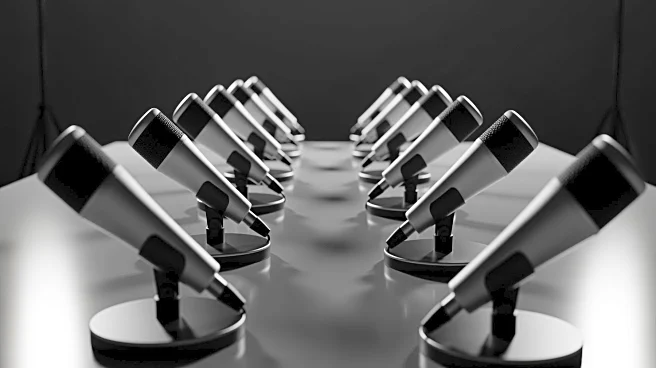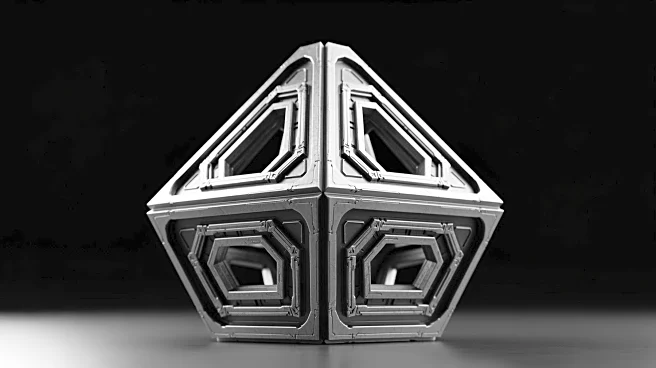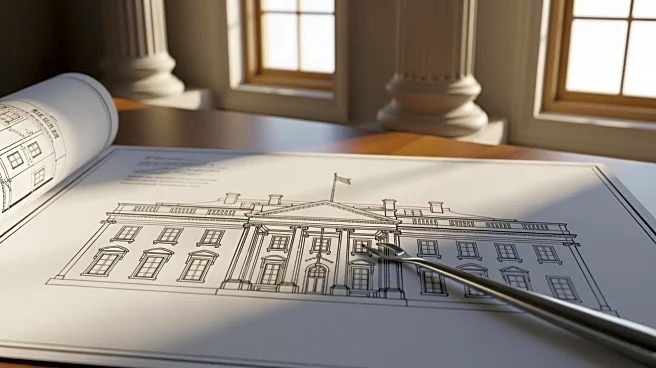What's Happening?
The Pentagon has announced a new composition of its press corps following a refusal by major news organizations to sign a new policy. The newly appointed members are noted to be more partisan, marking
a significant shift in the makeup of the press corps. This change comes after a contentious policy proposal that led to the withdrawal of several established media outlets. The decision to replace these outlets with more partisan representatives has raised concerns about the potential impact on the objectivity and balance of military reporting.
Why It's Important?
The reconfiguration of the Pentagon press corps could have significant implications for the nature of military reporting and public perception. The inclusion of more partisan members may influence the framing and coverage of defense-related news, potentially affecting public trust and the dissemination of information. This development underscores the ongoing tensions between media organizations and government institutions over press freedom and access. The shift may also reflect broader political dynamics and the increasing polarization within media landscapes.
What's Next?
The response from major news organizations and media watchdogs will be critical in shaping the future of Pentagon press coverage. There may be calls for transparency and accountability in the selection process of press corps members. Additionally, the impact of this change on the quality and diversity of military reporting will be closely scrutinized. Stakeholders, including policymakers and media professionals, will likely engage in discussions about the implications for press freedom and the role of media in democratic societies.











